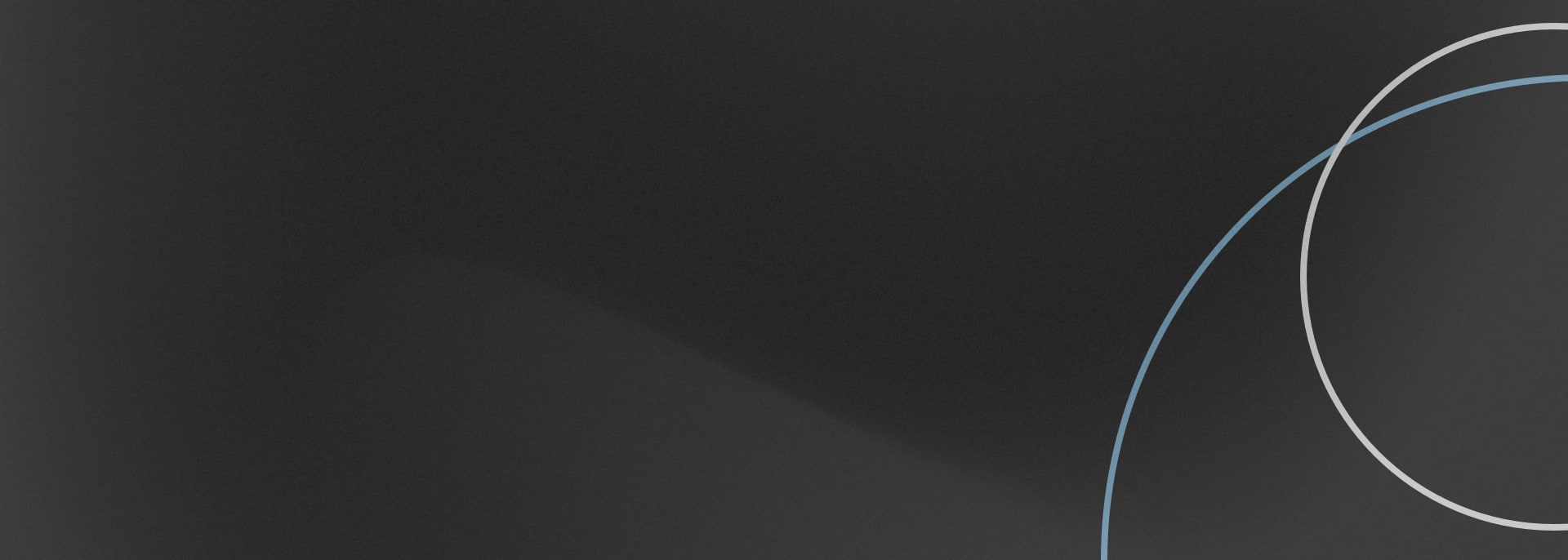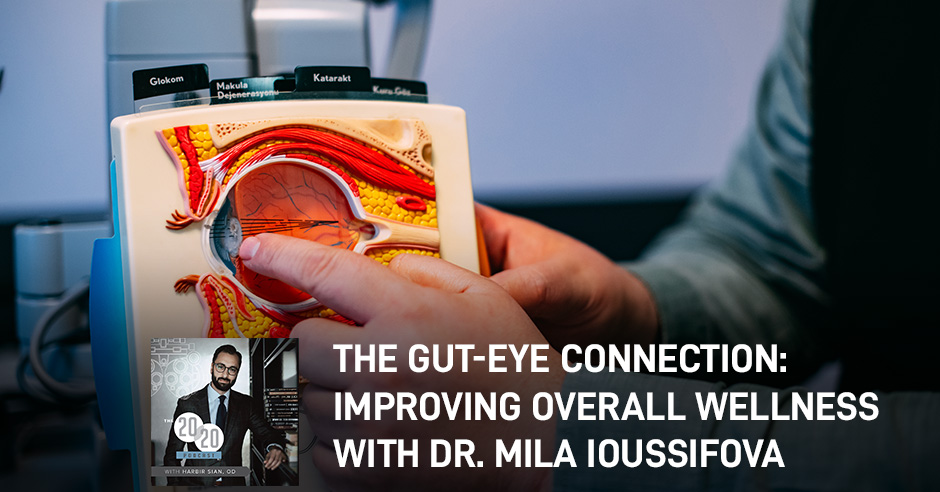
We know that our eyes are connected to our systemic health. But how often do we think about how our gut health can affect our eyes? In this episode, Dr. Mila Ioussifova discusses how her passion for treating dry eye led her to get further training and education as a board-certified nutrition specialist, so she could take her uber-advanced dry eye practice to the next level. Learn about the gut-eye connection and what you can do to improve your overall wellness. Tune in to Dr. Ioussifova in this eye-opening conversation!
Connect with Dr. Mila:
Learn about Eye Thrive Wellness:
—
Watch the episode here
Listen to the podcast here
The Gut-Eye Connection: Improving Overall Wellness With Dr. Mila Loussifova
I’m always grateful for everybody who’s reading and taking the time out of their busy day. The show has been growing and your support has been incredible. Thank you so much. I’m going to ask you one quick favor right off the top. We had a little glitch with our Apple Podcasts reviews. They’re all gone. I’m asking if you wouldn’t mind taking a second to leave a review and a rating that truly helps us get this content out to our colleagues, especially when I have such amazing guests as I do in this episode to share their insight and help us grow in our practices.
—
Dr. Mila loussifova, thank you so much for coming on the show. We’ve been talking about this for so long so I’m glad to have you here. Dr. loussifova graduated from the New England College of Optometry with honors. She completed a residency and is a fellow of the American Academy of Optometry. She served as an adjunct clinical faculty at the Pacific University College of Optometry for ten years and was an examiner with the National Board of Examiners of Optometry.
More importantly, in this conversation, Mila is a clinic owner. She is an expert in dry eye and is doing so many things at a level that truly 99% of us are not doing. I’d love to learn from her in the dry eye aspect. She’s a huge advocate for our overall wellness and gut health. She has a new digital program that’s available to educate us on the importance of gut health for eye health, which is called Eye Thrive Wellness. Thank you so much for joining me, Mila. I’m excited to have this conversation.
Thank you so much for having me. I’m super excited to be here.
Let’s talk about gut health and what have you, as far as your training and education, done to learn about this and become an expert in this. Let’s talk about the connection between gut and eye because I don’t think a lot of us are making that connection.
It all started from patient experience. We have patients in our chairs. The reason why we started to do these advanced dry eye treatments is because what was working before like home remedies and treatments was not adequate. A lot of us, including yourself, have invested a lot of money and time into bringing these advanced tools and technologies to treat the root cause of dry eye. I opened my practice many years ago.
My investment into dry eye disease was early on. I brought on IPL a few years ago. I brought on LipiFlow even before that and started doing all these root cause treatments. Over the years, as we know dry eyes and multifactorial disease, I have seen complex diseases with multi-factorial other comorbidities like autoimmune problems. As I was learning about these patients’ overall health, lifestyle, diet, gut health, and all of that, the more I was reading and learning, I was like, “There’s more to this than just treating in a surface with drops or even these tools like thermal or therapies.”
There’s more to dry eyes than just treating the surface with drops.
The research is growing. I feel like we’re all on board with dry eye being a chronic and progressive disease. We’re all doing everything we can. The same thing with I feel like the whole world of microbiome and gut health is not new but we are paying attention to it. It’s not a new concept. We know that what we put in our body matters and it will affect everything.
The spotlight is back on that for good reasons. I was like, “Instead of recommending an approach like, ‘Eat healthy, make sure you sleep enough, and things like that,’ I wanted to learn about the whole world of nutrition at a deeper level to be able to confidently talk to my patients when I am discussing their supplements, dietary changes, and things like that.” Back in 2019, I decided to go back to school to study Nutrition. It’s a Master’s in Nutrition Program at the University of Western States.
The timing was perfect because COVID happened and a lot of it was online anyway so I was able to continue with my studies during that time. It has blown my mind how much is out there that we didn’t know. I feel like the more I learned about nutrition, wellness, and gut health, the more there’s to learn but that’s how it started. I wanted to help my dry eye patients and give them the tools because patients would ask. I’m sure they ask you, “What can I eat? What can I not eat? What’s good for dry eye? What’s not?” I was like, “I don’t know. Let me study this and get back to you.” That’s how it all started with with me diving deep into this world of nutrition.
Talk about having a passion for something or committing to becoming better at something. You went back into the Master’s in this. That’s incredible. I would position you as the right person to speak to you on this topic being an optometrist and highly trained in our profession but then going back and getting this extra training, education, and nutrition.
It’s funny because so many patients ask, “What can I eat? What can I do differently to help my eyes?” I’ll be like, “Mix colored full vegetable. Your greens, eggplants, and blueberries. Omega-3.” I’ll stop there. I’m like, “I don’t know what else maybe could be helpful here.” There is a lot more. It would be nice to be able to share with our patients what we can be doing to overall improve our wellness.
I want to dive into more of the gut health thing for a second. In older cultures, the further East you go, you’ll hear a lot about the importance of gut health. This is old news for them. My parents and grandparents always say, “Make sure your gut is healthy no matter what. Are you not feeling well? How’s your gut feeling?” I was like, “That doesn’t make any sense.” They were understanding these decades if not generations. It’s coming to play here in the Western World a little bit more. I’ll go to my mom and say, “I’ll have heard that ginger or something’s good.” She looks at me like, “I told you that years ago.”
I’m originally from Azerbaijan. Growing up, there was no fast food. There is now. Everything was cooked from scratch and nothing was processed. At my grandma’s table with every meal, there was sauerkraut or these probiotics. You have probiotics with each meal. Something like bone broth with actual collagen and things like that was something that you did once a week or every two weeks. That was part of breakfast.
All of a sudden, Those things are a trend. People are putting probiotics in capsules where in the previous generations, they were eating with each meal. Probiotics were in your diet. Bone broth is all powders, capsules, or things that you have to pay for. Whereas before, you go to the market and get those bones, nails, and things like that. You cook them overnight. In the morning, you had that bone broth with collagen and all this gelatinous. I remember I was grossed out when I was a kid like, “That’s disgusting.” My parents would give me like, “This is good for your skin, bones, and gut.”
A lot of those things are not new. It’s not a new science. It’s not new for grandparents. Our parents have been doing it. Since the ‘80s, everything has changed like cereals. We’re getting away from that but cereals were a big part of everybody’s breakfast. All these highly processed and sugary breakfasts are the first thing you eat. The marketing of all these fast food and convenience food industries took over so everybody forgot about ancient ways of eating. We wanted everything in pretty packages and boxes with some toys inside. That’s how they got the kids.
We start seeing so many more diseases. Autoimmune disease is on the right. It keeps growing. I have so many young patients with autoimmune conditions. Nobody says why. Everybody says, “I have another immune condition. I have to go on stereo treatments when I have a flare-up.” It is accepted but my question was, “Why do we have these diseases that are growing rapidly?” That’s the answer. Our food from the ‘80s changed drastically. Babies of the ‘80s are getting the consequences of the diet and changes that happened during those decades.
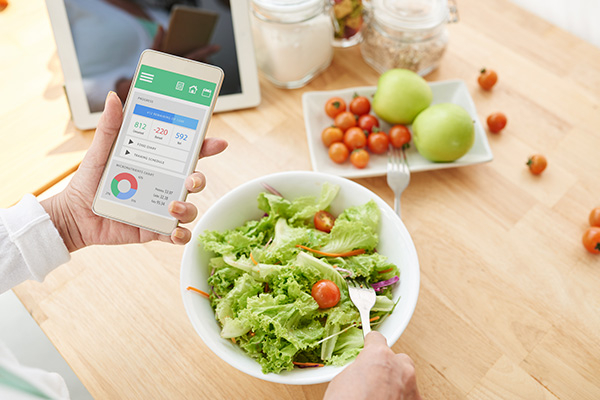
You’re a parent as well and with our kids, we’re trying to stay away from certain things. We’re not perfect and also not super strict but the obvious thing is, “Don’t eat the sugary or Lucky Charms for breakfast. Don’t drink too many of those juice boxes,” or little things like that. It’s anything that is partly a grandparent thing. The grandparents want to give this stuff to the grandkids but they’re like, “You’ve had all that stuff when you were kiddos.” I’m like, “I know. We didn’t know any better. You didn’t know any better. Let’s try to change that trend.” Let’s talk about the program, Eye Thrive Wellness. What are you aiming to do with this program? Who’s it for? What’s in it?
First of all, it’s a partnership with Dr. Celia Futch. She is a good friend of mine and my business partner. We met during this program. We were doing this during our studies at the University of Western States. She also did the same track. After you do the classroom work and take this board, it was uptown to school all over again. I had to take this four-hour board exam but then to get your certified nutritionist license, you have to also do 1,000 clinical hours with a supervisor. We would have this cohort of students. We would do Zoom login and have to present nutrition cases and clinical cases like, “Here’s a patient with the symptoms. Here’s my dietary protocol or supplement protocol.”
Doing that program is where we met. All of our cases involve dry eye patients. That was the moment that it clicked like, “This is where we see the problem in eye care. A lot of patients had dry eye problems, gut problems, and autoimmune conditions.” One-on-one, we’re helping a lot of these patients successfully. After we were done with 1,000 hours of clinical work, we decided, “Why don’t we put together a program that’s accessible to more patients out there?”
If you see that they have on their questionnaire eczema, rosacea, or other skin inflammatories, a lot of times they have gut problems. That’s a clue for you to ask, “How is your gut health? Do you tolerate foods? Do you get bloating and pain in your stomach? Do you have regular bowel movements?” You have to get comfortable asking those questions from your patients. As eye doctors, we’re not but we’re healthcare professionals. Sometimes patients will be like, “Why are you asking that?” That would be how you make that connection.
If you don’t have the tools or the knowledge yet to talk to patients about changes to make, that’s what this program is for. This program is designed as a ten-week step-by-step protocol for patients to go through. They get recipes, supplement protocols, and dietary protocols. They also get support programs. They get a forum where other participants and patients with dry eyes can ask questions from each other. They get responses from us. They post questions there. Dr. Futch and I will answer those.
The most valuable thing that you get from this is one-on-one access to us. We have these live sessions where she and I will get on and answer questions. We’ll have a discussion. Sometimes we’ll do a presentation. A lot of it is on diet, nutrition, and wellness if they ask, “How’s this related to my eye?” We don’t change what the prescribing doctor gives. If this is your patient and you have the patient a certain protocol like IPL and even a modulator, and then you say, “It benefits some dietary changes. Follow this program,” we can’t change anything that you’ve prescribed.
We make that very clear to patients. “You follow your doctor’s recommendations on eye care. We’re here to support that and what your doctor is doing. We give you the tools to supplement that and improve from the inside out.” It’s a compliment to what the prescribing doctor is doing but it doesn’t take over that.
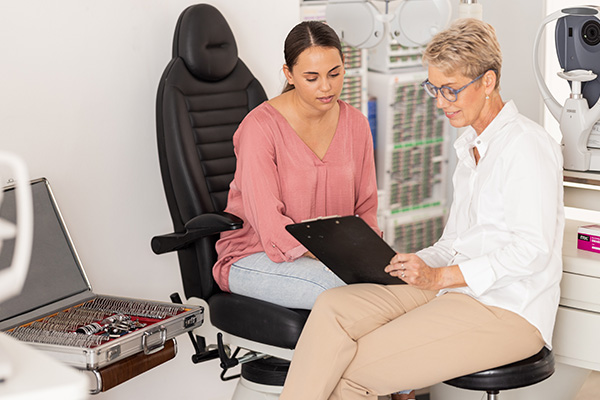
That’s a pretty in-depth robust program that you have there for patients. The forum part and the fact that they get to speak to themselves and see Dr. Futch one-on-one like that is so huge because you know this better than anybody. For a lot of patients who are dealing with chronic dry eye, there’s an emotional and psychological component to it. For them to have a forum where they can share their concerns and feelings with others who are in a similar position is helpful.
With that psychological connection with dry eye in any person, we have more stress and anxiety. That mental health component is in the program too. We talk about the vagus nerve and the sympathetic nervous system and how they innovate your digestion but also your glands. Your lacrimal and meibomian glands are innovated by the parasympathetic nervous system. How are we calming down your sympathetic, fight or flight because that’s what is on overdrive for most people? In dry eye, especially, that’s important to bring that attention because as you’ve seen, a lot of these patients have anxiety and depression, especially around their eye problem.
They get super nervous and anxious about that this is going to take their vision. We take that component very seriously and talk about it throughout the program but then we have a section on gut health and reducing inflammation. What we like is anybody can go through it. The fact that it’s accessible for any eye doctors who maybe don’t have the time to learn all this and don’t talk to patients, they can refer their patients to this online program where patients can go through it. That would benefit what they’re doing already for them in their clinic.
What about from the provider side? Full disclosure here, I started the program from the provider side. I started to do a few modules. I’m a big anatomy and physiology nerd. I love learning about the body and all that stuff. Some of it is a review but I enjoy it. I like learning again about how digestion works and all the different things involved. I’m excited to learn about how this is going to help me have this conversation with my patience and make that connection. From the provider side, what does that program provide optometrist who wants to learn more?
I was excited to see how much interest. When we launched the patient program, we got a lot of interest in something for providers so we decided, “Let’s put together an educational masterclass.” Some of it is going to be a review. We are healthcare providers. We’ve learned some of this but as you get deeper into the masterclass, you will learn a lot. You are going to learn about all the gastrointestinal problems that we didn’t learn about in school. Maybe you’ve heard about all the risk factors and how to recognize them.
If somebody has a symptom like this, you’re going to recognize that maybe they have IBS. If it’s not controlled, they’re not absorbing all the nutrients they’re eating so they’re nutrient deficient. You don’t have to treat them but put the points together or link the symptoms to the condition. The goal of this masterclass is to give you the tools to, first of all, review but also learn a lot of new things that you may not be aware of to be able to comfortably and confidently talk to your patients about the link between their gut and eye health.
Even the fact that I’ve gone through a couple of modules. There are a few things in there that already are valuable but one thing that a little light bulb went off in my head where the connection between the gut and the eye all of a sudden made a whole bunch more sense. It’s one very small thing but what’s more present is one of the markers like the interleukin 17 with this inflammation in the gut but that’s the same marker that we find in our eye when there’s inflammation on the surface of the eye.
It’s the Th17 and IL-6 but it’s the mucus membrane. It’s a membrane that’s in the lining of your gut and that’s what’s on the surface. It’s very similar. We have to remember that up to 80% of our immune cells are in our gut. We’re dealing with dry eye. We’ve already all accepted it as an inflammatory condition. We have a lot of treatments that target reducing inflammation on the surface but if your gut is in flame, you are like putting a Band-Aid on the problem on the surface with an immunomodulator or even a suppressant. Why do these people not get better when we put them on immunomodulators? They get better but they have to stay on it because we are blocking those receptors.
We’re modulating inflammatory cascade, which is important. I’m not saying I don’t prescribe an immunomodulator. I love immunomodulators but are we putting a Band-Aid on the problem? If there’s a bigger issue going on in the gut, if the gut is inflamed, this is going to keep firing up. The analogy I use for patients is let’s say I do gut testing and I see they have severe dysbiosis. Maybe they have some overgrowth of some pathogenic microbes and leaky guts. They’re inflaming from the inside out. I tell them, “What we’re doing with your eyes is putting out a few trees in the forest fire.”
The analogy I say to patients is that if there is a forest fire, by treating your eyes, we’re putting out a few trees. We’re putting some water on a few trees. They’re going to burn back up again because the bigger fire in the forest is not addressed. That’s the other thing with the gut. If the gut is breathing flame, and we have all of our immune system, I’ve got to communicate with everything with our brain or skin. Rosacea patients are such a big thing.
You see a lot of rosacea patients too because you’re doing IPL. Start asking them, “How’s your gut health? Have you ever been diagnosed with IBS? Do you have problems with certain foods?” A lot of times, they’ll say, “I always had that.” Patients whose allergy symptoms are getting worse. They say, “My allergies are getting worse and worse every year.” That’s a symptom of dysbiosis, the imbalance of your gut. It is not healthy because your allergy symptoms will get worse and worse. You’ll start developing more allergies.
Food intolerance is a big one. Before I started learning about nutrition, I used to be like, “It’s your food sensitivity test. Avoid those foods.” It’s not normal to have food intolerances. That’s a Band-Aid approach like, “Let’s avoid those foods.” You’re not treating the reason why you have intolerances to those foods. It’s not an allergy. Food allergies are different. Those are like you can’t tolerate peanuts. You have peanut allergies. That is something from childhood but I’m talking about adult-onset food intolerances.
By doing food sensitivity testing, you can identify and eliminate them but you’re going to have more foods you can’t tolerate. How much more can you eliminate? I don’t love that approach. I love to look at why you develop this all of a sudden and continue to get worse. Let’s treat the underlying cause of that instead of avoiding certain food groups. You can still avoid them but it’s not going to treat the problem. It’s your symptoms.
We get caught up doing treating symptoms instead of getting to the underlying issue. Maybe we can do a little practice here with something tangible for someone who’s reading. Maybe you would want to craft the scenario so you can better give us an example. You have a patient here in the exam chair. Your exam room is an optometrist and you’re doing your regular 20 to 30-minute eye exam. There’s a person in front of you who you may be thinking has some gut issue that’s related to their eye. How are we going to have this conversation with somebody like myself who doesn’t have these conversations very much? How should I get started on that?
During the 20 or 30-minute exam, it’s probably not the best setup to be able to talk about because it takes time. My new dry eye appointments are one hour long because they have a lot going on. It does take time but let’s say in a typical optometry practice where you only have about 30 minutes, you want to maybe divide it. Do their routine stuff first and then have them come back where you have a little bit more time to dive into some of the symptoms.
The things that I asked are skin conditions. If somebody has eczema around their eyes and they’re having to put on steroid creams all the time, that right there is a good probable indicator. Not every single time but it’s a very high chance that that patient has some imbalance in their gut. Maybe the allergies are getting worse. These are the patients we see all the time. You see patients with eczema. They say, “What can I put on this?” You’re like, “There’s maybe a gut connection. There’s maybe something going on with your gut health that’s flaring up your skin.”
I don’t like the blanket approach but you can say, “Let’s remove certain food groups. Dairy could be inflammatory for that. Let’s do 1 month or even more ideally 2 months. You can start with one month of no dairy.” Patients are not going to like you for that especially if they love their cheese but if you wanted to start with something, maybe bring that tension to that like, “That could be a connection.” The light bulb might go off in the patient’s mind like, “I do have a lot of bloating and gas. I feel uncomfortable after certain foods. I never knew that was connected to my skin.”
Rosacea patients are a big one too. We know spicy foods, alcohol, fermented, and histamine foods tend to flare it up. Bringing that tension or making the connection is the first place. Utilize if the patient is like, “Where can I learn more? The program might be something,” but sometimes even connect with your local functional medicine doctor. Maybe you have in your community a naturopathic doctor or nutritionist that you can partner up with. Have that referral setup where you can send those patients. It’s not a problem with everybody but the reason why we decided to do this program is because a lot of these nutritionists don’t know about eye health.
With us, you get an eye doctor plus a nutritionist. We know a lot about both areas. Working with nutritionists, you may have to fill in the blanks a little bit. It’s not a bad place to be, having someone that you can collaborate with and call manage with, recognizing or bringing to patients’ attention. If they want to do more, then send them to a professional who can do maybe some gut testing like stool testing and things like that. Look at their microbiome and target their dietary and supplement protocol because it comes down to that.
There’s no blanket approach like with dry eye. You don’t have the same protocol that works for everyone. You tailor your treatment depending on the patient in your chair. That’s how I approach it. When I get asked by my colleague, “What’s the diet that you recommend for dry eyes,” there is no one diet that fits all. That’s the big question but everybody’s like, “What’s the best diet out there? Let me eat that.” It has to be a personalized approach.
There’s no blanket approach with dry eyes. You don’t have the same protocol that works for everyone. You tailor your treatment depending on the patient.
You also deal with people. Some people will say, “I will never do that.” I can’t force them to give up their dairy. If they’re not able to remove certain things from their diet, we have to work with it. That’s the nuance when I went through this program with a nutrition program. In social media, everybody is all of a sudden, an expert. They’re like, “This is a diet to do. Go big. Go carnivore. Do this and that.” A lot of those people don’t study nutrition because there are a lot of nuances that when you approach it like that, you can harm people who are losing their bodies and following certain nutritional protocol that doesn’t work with their system.
In a lot of those cases, I feel like it’s people who say, “This worked well for me. You should do it too,” but that’s not the right recommendation to make. I agree with you right off the top here. You mentioned 30 minutes is probably not enough time to have this in-depth conversation but during a comprehensive eye exam, let’s say we’re having this patient come back or perhaps they’ve come back 2 or 3 times with the same issue over the past months with chronic dry eye, inflammation blepharitis, or whatever it might be.
You’re wondering, “Why my usual therapy is not working as well?” It might not be a bad idea to consider, “Let’s see if we can get your gut health tested. I’ll send you to the professional who can do that and get the right results.” We’re medical healthcare professionals. We provide treatment based on data, science, and the findings that we have. We can’t treat gut health issues unless we have data to show what their gut health is. Send them to the right person. Maybe when they have the right information, then the programs make a lot of sense. Go to a program that can provide them with the information. Walk them through the recipes, these supplementations, and all these things.
This is our passion but this was our goal with the gut health masterclass for eye care professionals. We wanted to create that for our colleagues who want to learn more so that way, they can start approaching this and having these conversations. Maybe they’ll pursue it even further, take on, and start doing this themselves, or pair up with someone who does that in their area like anything with co-manage.
If you have a retinal problem, that needs to be seen by retinal specialists. It’s finding your people that can ultimately help the patient. That’s the goal. I’ve been doing a lot of advanced diet treatments for a long time and we’ve been doing biologics here for the last few years with autologous serum and PRP. I do every advanced dry eye treatment that’s available. Some patients still have issues that are ongoing. This is where I feel like I approach it from all angles from the inside out, especially as we know with The New Jew’s lifestyle report, gut health is highlighted there. Also, sleep and mental health.
If everything we did with advanced treatments was working, we wouldn’t have all these other studies to say, “What else is going on?” When I started learning about this, I was like, “I need to learn about their detox systems. Are they detoxing all the chemicals that are going in their bodies?” I want to know how their sympathetic and parasitic nervous systems work. Is it imbalance? How’s their sleep? It’s not just diet.
It’s like talking to your patients, “What else can we do,” and the importance of sleep. We are talking about taking breaks from screens and doing blinking exercises but when do they turn off their phones and start unwinding so that way they get a good deep restorative sleep? Do they do that on a regular basis? Your dry eye patients will say, “My sleep is horrible.”
“I worked a night shift.”
It’s not a plug for our friends that you may but this is why I love some of the companies that I recognize. It’s an OD-owned company that recognizes that mental health and sleep should be part of dry eye management. I devise a curated practice for my patients and I use it myself. I tell them, “It’s not just the warm compress. This is something that works.” It takes everything and the importance of unwinding in and tapping into your parasympathetic nervous system. I love that there are more of us, doctors and providers, who are bringing the knowledge and technologies to the space because it’s needed. A lot of these patients need this help.
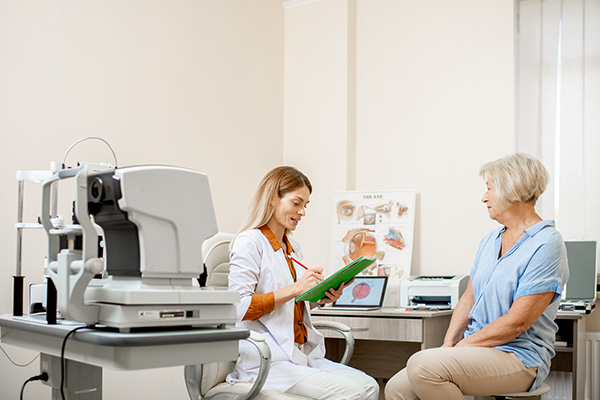
Shout-out to Sharmin Habib for bringing that product out to the profession because it’s a cool product. I’m saying this because it’s a good product and a good person behind it. The fact that you mentioned the aspects of what you do in your dry eye clinic helps elevate what you’re doing to another level. You’re already doing, as far as we know, the most you can do to treat dry eye at the most advanced level. That is when you see that’s not the be all and all.
There’s more to it because as we know, our eyes are connected to the rest of our bodies and there’s other stuff going on. We need to help try to control all those other things. Gut health is a massive component of that. I want to give you a couple of minutes to share any final words that you want to share and then we’re going to have to bring you back on because there’s so much more we get to talk about.
My message is to any ODs that feel maybe getting burnt out or feeling like they’re doing the same thing. I love this profession so much. I feel like there’s nothing else that I want to do out there. It’s giving me an opportunity to expand my knowledge in all these different areas. It’s like going back to school to be a nutritionist. As an OD, it opens up my path to pursue even more. Specialize in something that you are passionate about. For me, it was dry eye and making a difference.
Harbir, you can probably relate to this. When you make changes in a patient’s life, it’s so rewarding. I’ve had patients cry in my chair and say, “You gave my life back.” That’s what motivates me. With the whole gut health and nutrition, it has even more elevated. The things I get from my patients are the reason why I keep doing this. They say, “All I came to you for is my eyes and now my skin is better. I have better energy. I’m sleeping better.”
They tell me that I’m the only doctor who made that connection. They’ve had gut problems all their life and they’ve been given PPIs or some Band-Aid approaches for many years but when somebody takes the time to listen, makes the connection, and tries to fix the problem, they are super grateful. Now that we’re back to hugging, I get hugs again from a lot of grateful patients. I love that and I want to spread that to my colleagues. If you’re stuck doing something you don’t like in optometry, there’s so much more that you can do like specializing something and where you make a huge impact in your patient’s life.
If you’re stuck doing something you don’t like in optometry, there’s so much more that you can do by specializing in something where you can make a huge impact in your patient’s life.
That’s a very important message to share. We’re lucky to be in a profession where we can take so many different avenues. It’s never too late to explore a new one. Perhaps, you’ll find something that you’re truly passionate about, which you are. It’s always nice to see somebody who’s truly passionate about what they do and who loves what they do. It energizes other people and allows them to feel like they could be that way too. They can do something that they enjoy doing too. They don’t have to be stuck in a rut. Thanks for sharing that. Where do people go? Is it EyeThriveWellness.com?
Yes. Eye Thrive Wellness is our new company. That’s where the both programs are. We’re going to have more things there. Make sure to stay tuned. I’m pretty active on Instagram. The place to find me is @EyeDoctorMila and @EyeThriveWellness. We put out some content there as well. That’s a place to follow us.
Thank you so much, Mila. We’ve been working on this for a little while so I appreciate you coming on. Thanks for putting this program together. I’ve been enjoying it from the practitioner side and education. I encourage all our colleagues to get out there and learn more about this because it’s going to be able to improve our patient’s lives and our outcomes so much more. Thanks for coming on to share that. Thank you readers. I’m always grateful for all the support. Please leave us a review. I’ll see you again in the next episode.
Important Links
- Apple Podcasts – The 20/20 Podcast
- Eye Thrive Wellness
- @EyeDoctorMila – Instagram
- @EyeThriveWellness – Instagram
About Dr. Mila Loussifova
 Dr. Mila Ioussifova graduated with honors from the New England College of Optometry and completed a residency program in community health and ocular disease in Boston, MA. She is a fellow of the American Academy of Optometry and is on the leadership team of the Anterior Segment Section of the AAO. Dr. Mila served as an adjunct clinical faculty at the Pacific University College of Optometry and was an examiner for the National Board of Examiners in Optometry. She is a Board-Certified Nutrition Specialist and studied Human Nutrition and Functional Medicine at the University of Western States. Dr. Mila owns a private practice specializing in advanced dry eye treatments, nutritional counseling, and aesthetic services.
Dr. Mila Ioussifova graduated with honors from the New England College of Optometry and completed a residency program in community health and ocular disease in Boston, MA. She is a fellow of the American Academy of Optometry and is on the leadership team of the Anterior Segment Section of the AAO. Dr. Mila served as an adjunct clinical faculty at the Pacific University College of Optometry and was an examiner for the National Board of Examiners in Optometry. She is a Board-Certified Nutrition Specialist and studied Human Nutrition and Functional Medicine at the University of Western States. Dr. Mila owns a private practice specializing in advanced dry eye treatments, nutritional counseling, and aesthetic services.



